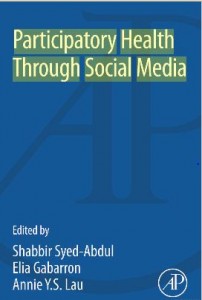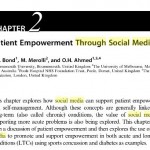Yesterday I attended an ERC Starting Grants session at the London School of Economics. Although I may never reach the heady, research heights of submitting a proposal to the prestigious, ERC Starting Grants Call (let alone progressing past Step 1, with 9% success rate!), the workshop provided a range of advice equally applicable to preparing: i) funding proposals and, ii) job applications. From the background search to the interview presentation, in many ways job applications are similar to research funding applications.
Firstly, the background search: if possible, find out who has recently received funding in your field. If applying for a position, identify previous successful candidates. What skills and experience did they have? Appreciating these will allow you write your application accounting for your own capabilities, whilst also identifying how the project or position can further your professional and personal development. Awareness of how the project/position can create opportunities to turn your weaknesses, to strengths, is an important advantage at the interview stage. Next, what are the priorities of the funder, company or institution? Does your CV fit the job roles and responsibilities? Does your project proposal satisfy the call?
Secondly, the writing: be ambitious, but avoid sounding unrealistic. Adhere to the application criteria and submission guidelines (even font-size, line-spacing, etc). Provide evidence of how your project is innovative, what makes you stand out, or what specific skills you can contribute. These should relate to the criteria of the position advert or the research call. Preparation is key; start writing as soon as possible, and expect multiple drafts. Build your proposal (or Personal Statement) logically, based on your previous research (or experiences and skills). Make the application a pleasure to read, but stick to the specific guidelines. If preparing a research proposal, use data and graphs; if preparing a Personal Statement, tell a story expanding on your CV. Ask friends and/or colleagues for comments on your application – informal peer-review in preparation for formal peer-review (the same applies when practicing your interview presentation). Importantly you want to convince those outside of your field how you (or your study) can provide a long-lasting difference.
If you are invited to interview, do your research, again. What are the values of the funder, institution or company? Who is on the panel? What is their background? Next, structure a convincing presentation aligned to your application; support each claim with an example, but be succinct and to-the-point. Maintain focus and momentum, but communicate your enthusiasm. Once finished, expect a range of technical and non-technical questions. Ultimately, interview questions will relate to the application criteria, and range from your subject-specific knowledge to transferable skills (i.e., project management skills). Finally, use questions as an excuse to show your audience what you know; view your ‘weaknesses’ as opportunities. If successful, celebrate; if unsuccessful, view as an opportunity. As the ERC Officer mentioned ‘many successful applications come from investigators who were unsuccessful with a previous application and subsequently improved their submission’.
So regardless as to whether you are an undergraduate looking to secure a placement/ postgraduate position, or a Senior Lecturer applying for research funding, translate what you have learnt from previous writing experiences to the opportunities presenting you here and now.
ERC Starting Grant Call
ERC Starting Grant – Funded Projects

EU Funded Projects – Host Countries
James Gavin, Lecturer (Exercise Physiology) – Faculty of Management
 The week saw the publication of a new book by Elsevier (June 9th) Health Through Social Media which contains a chapter by FHSS staff Drs Carol Bond and Osman Ahmed called ‘Patient Empowerment Through Social Media’. Carol and Osman have a wide-ranging experience in researching and publishing about e-health, m-health and social media. They co-authored this topical chapter with a colleague in Australia.
The week saw the publication of a new book by Elsevier (June 9th) Health Through Social Media which contains a chapter by FHSS staff Drs Carol Bond and Osman Ahmed called ‘Patient Empowerment Through Social Media’. Carol and Osman have a wide-ranging experience in researching and publishing about e-health, m-health and social media. They co-authored this topical chapter with a colleague in Australia.
 Bournemouth University welcomed Mr Peter Huang, Deputy Director of the
Bournemouth University welcomed Mr Peter Huang, Deputy Director of the 





















 BU attendance at third annual GCPHR meeting in June
BU attendance at third annual GCPHR meeting in June Interactive Tangible and Intangible Heritage Applications – BU student work featured in new book chapter
Interactive Tangible and Intangible Heritage Applications – BU student work featured in new book chapter Second NIHR MIHERC meeting in Bournemouth this week
Second NIHR MIHERC meeting in Bournemouth this week MSCA Postdoctoral Fellowships 2025 Call
MSCA Postdoctoral Fellowships 2025 Call ERC Advanced Grant 2025 Webinar
ERC Advanced Grant 2025 Webinar Horizon Europe Work Programme 2025 Published
Horizon Europe Work Programme 2025 Published Horizon Europe 2025 Work Programme pre-Published
Horizon Europe 2025 Work Programme pre-Published Update on UKRO services
Update on UKRO services European research project exploring use of ‘virtual twins’ to better manage metabolic associated fatty liver disease
European research project exploring use of ‘virtual twins’ to better manage metabolic associated fatty liver disease